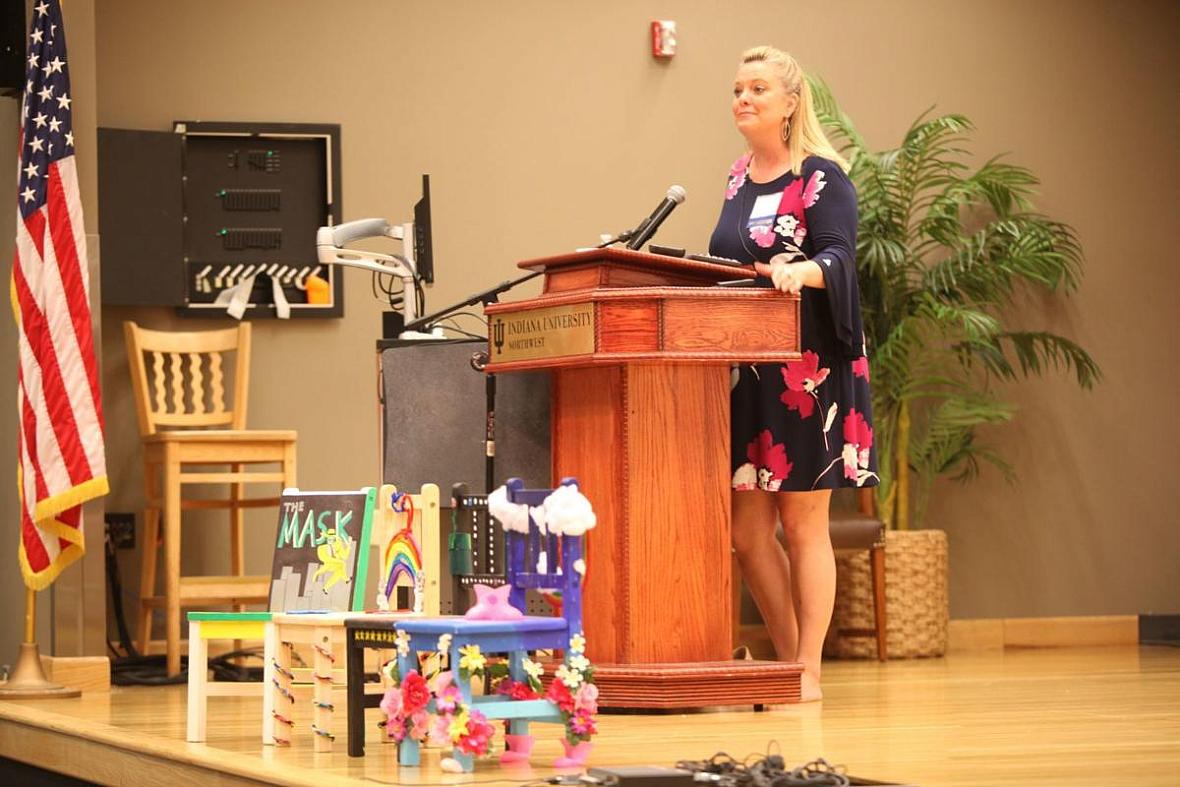Abuse victim in Gary: Treat child abuse, neglect like a deadly disease
This story was produced as part of a larger project led by Giles Bruce, a participant in the USC Center for Health Journalism's 2018 Data Fellowship.
Other stories in this series include:
Abuse victim in Gary: Treat child abuse, neglect like a deadly disease
In one Indiana county, as many as 1 in 4 kids are subject of child neglect investigations
How to get pregnant women off drugs? Indiana looks to Seattle
'Punishing poverty': Is Indiana's child welfare system stacked against the poor?

Lori Proland speaks Friday at the Forum on Child Abuse and Neglect at Indiana University Northwest.
Giles Bruce, The Times
What if the United States treated child abuse and neglect as if they were deadly diseases?
Billions of dollars are dedicated every year to eradicating illnesses, from ones that kill hundreds of thousands of Americans, to more rare conditions.
A woman who survived severe child abuse says our country should take a similar public-health approach to the mistreatment of kids, which kills about five of them a day.
"There's a national foundation for every single disease, form of cancer, every body part and 20 different genes. There is a national foundation that focuses on education and training, advocacy, prevention and research, to help advance that issue, even the most obscure diseases," Lori Poland said.
"We have nothing like that for child abuse and neglect."
So Poland, of Denver, recently started the National Foundation to End Child Abuse and Neglect, or EndCAN. She discussed her approach with a conference of social workers, mental health professionals and advocates Friday at the 29th Forum on Child Abuse and Neglect at Indiana University Northwest in Gary. The event is held annually in April, which is National Child Abuse Prevention Month.
She brought her message to a state looking for answers. In 2017, Indiana had the third-highest rate of child abuse and neglect investigations and second-highest rate of child abuse and neglect victims in the country, according to the U.S. Department of Health and Human Services.
The event traumatized her and her family. So as an adult she decided to take action. Last year, along with her childhood pediatrician, Dr. Richard Krugman, the former dean of the University of Colorado School of Medicine, she founded EndCAN.
It starts, she said, with discussing what can be a difficult topic.
"We did it with AIDS, we did it with leukemia, we did it with equal rights, we did it with LGBT, we did it with anti-smoking, we've done it with teen pregnancy," she said. "All of those things have gotten better because we talk about it. When we talk about it, we do something about it. When we don't talk about it, we don't do anything."
[This story was originally published by nwi.com.]

